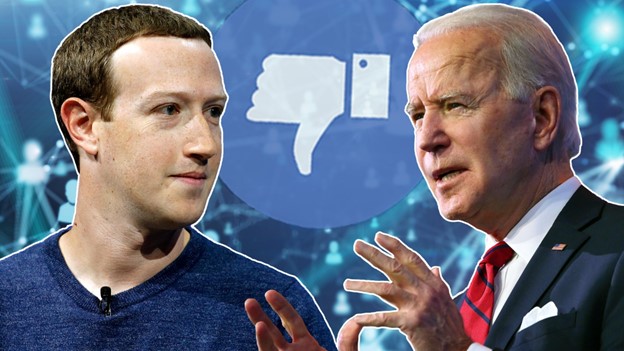We support our Publishers and Content Creators. You can view this story on their website by CLICKING HERE.

On Monday, Mark Zuckerberg’s company Meta announced a ban on Russian state media across its platforms, including Facebook and Instagram, citing concerns over “election interference.”
“After careful consideration, we expanded our ongoing enforcement against Russian state media outlets. Rossiya Segodnya, RT, and other related entities are now banned from our apps globally for foreign interference activity,” a spokesperson for Meta stated.
This decision follows the recent announcement from the Biden administration, which imposed new sanctions on Russian state media, asserting that these outlets were masquerading as legitimate news providers in multiple countries as part of a broader strategy to disseminate Russian propaganda.
State Department official James Rubin described these networks as “a fully fledged member of the intelligence apparatus and operation of the Russian government.”
Meta’s move to censor Russian media should raise a couple of eyebrows in light of Zuckerberg’s recent statements expressing his regret for complying with the administration’s demands to suppress information related to COVID-19 and the Hunter Biden investigations prior to the very contentious 2020 election.
In a letter to the House Judiciary Committee earlier this month, Zuckerberg shared, “I believe the government pressure was wrong, and I regret that we were not more outspoken about it. I feel strongly that we should not compromise our content standards due to pressure from any Administration in either direction — and we’re ready to push back if something like this happens again.”
Moreover, Zuckerberg acknowledged that the administration’s attempts to characterize certain reporting as Russian disinformation were unfounded, stating, “It’s since been made clear that the reporting was not Russian disinformation, and in retrospect, we shouldn’t have demoted the story.”
Given this background, the question arises: Why is Zuckerberg once again yielding to the administration that is leveraging the same narrative of “Russian interference” ahead of another election cycle?
Meta’s decision once again reflects a troubling trend wherein social media platforms operate under the pressure of governmental influence, to undermine the principles of free speech.
Such actions threaten the integrity of democratic discourse and the role of government in shaping public perception through the filtration of information and the censorship of speech.
By pressuring social media companies to restrict certain content or viewpoints, the administration itself is interfering with the electoral process it claims to want to protect while harming the very democratic principles they claim to uphold.
By allowing Meta to ban Russian media networks, Zuckerberg has contradicted his previous statements and exposed that he is still an ally to the Biden regime and its efforts to censor information right before another major election.

 Conservative
Conservative  Search
Search Trending
Trending Current News
Current News 


